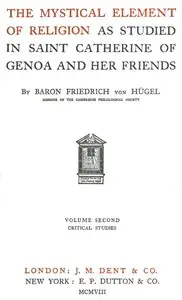"An Essay on the Beautiful, from the Greek of Plotinus" by Plotinus is a philosophical treatise likely written in the late 3rd century AD, focusing on beauty's nature and its connection to the divine and the soul. This book attempts to explore and define beauty, delving deeply into metaphysical concepts aligned with Platonic philosophy. It examines how beauty manifests in both the physical world and the higher realms of intellect and virtue. The essay argues that beauty exists on different levels, from physical beauty perceived by the senses to a transcendent beauty that the intellect can comprehend. Plotinus asserts that true beauty is linked to the divine source of all good and that the soul, through its purity and virtues, can ascend toward this ultimate beauty. The text contrasts superficial perceptions of beauty with deeper philosophical insights and emphasizes the importance of inner reflection and purification to recognize true beauty. It advocates a return to the essence of beauty within oneself, suggesting that the pursuit of loveliness should lead one toward the divine rather than material forms. This approach to beauty, as combined with the philosophical inquiry into its nature, illustrates Plotinus's view that beauty is a pathway to understanding the eternal truths of existence. (This is an automatically generated summary.)

An Essay on the Beautiful, from the Greek of Plotinus
By Plotinus
"An Essay on the Beautiful, from the Greek of Plotinus" by Plotinus is a philosophical treatise likely written in the late 3rd century AD, focusing on...
Plotinus was a Greek Platonist philosopher, born and raised in Roman Egypt. Plotinus is regarded by modern scholarship as the founder of Neoplatonism. His teacher was the self-taught philosopher Ammonius Saccas, who belonged to the Platonic tradition. Historians of the 19th century invented the term "neoplatonism" and applied it to refer to Plotinus and his philosophy, which was vastly influential during late antiquity, the Middle Ages, and the Renaissance. Much of the biographical information about Plotinus comes from Porphyry's preface to his edition of Plotinus' most notable literary work, The Enneads. In his metaphysical writings, Plotinus described three fundamental principles: the One, the Intellect, and the Soul. His works have inspired centuries of pagan, Jewish, Christian, Gnostic, and early Islamic metaphysicians and mystics, including developing precepts that influence mainstream theological concepts within religions, such as his work on duality of the One in two metaphysical states.

















